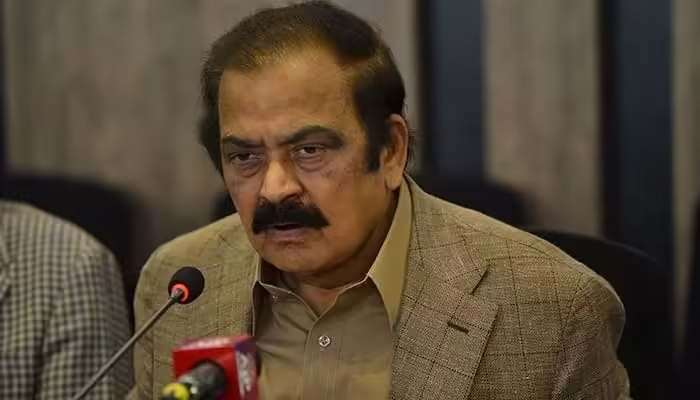Adviser to the Prime Minister on Political Affairs, Rana Sanaullah, has proposed a significant shift in how social media is regulated in Pakistan. Speaking on Geo News program Aaj Shahzeb Khanzada, Rana Sanaullah emphasized the necessity for the judiciary to take the lead in formulating legislation to regulate social media platforms.
Advocacy for Judicial Legislation
Rana Sanaullah’s statements mark a pivotal moment in the ongoing debate over social media regulation in Pakistan. He explicitly called for the judiciary to be granted the authority to draft and implement the necessary laws to regulate social media, acknowledging that current regulations are inadequate to address the complexities and challenges posed by these platforms.
“I believe the government should allow the judiciary to pass the kind of legislation it deems necessary to regulate social media,” said Rana Sanaullah. His remarks underscore a push towards empowering the judicial system to play a more proactive role in shaping the legal framework governing social media.
Appealing to Judges
In his discussion, Rana Sanaullah also appealed directly to the honorable judges, urging them to approach social media issues with a measured and discerning attitude. He stressed that judges should not overly prioritize social media concerns in their deliberations, suggesting that the judiciary’s involvement should focus on creating robust and comprehensive regulations.
“I will appeal to the honorable judges not to give undue importance to social media. Instead, they should focus on formulating effective legislation to manage it,” he stated. This plea reflects a desire for balanced and thoughtful legal oversight that prioritizes societal well-being over the immediate noise often generated on social media platforms.
Inadequacy of Current Laws
Rana Sanaullah highlighted the insufficiency of existing social media laws, pointing out that they fall short in addressing the myriad issues that arise in the digital sphere. The rapid evolution of social media technologies and the increasing prevalence of online misinformation, cyberbullying, and digital privacy concerns necessitate a more rigorous and adaptable legal framework.
“The laws related to social media currently in place are not enough,” Rana Sanaullah asserted. This admission aligns with broader concerns about the need for updated and more effective legislation to keep pace with technological advancements and the changing dynamics of online interaction.
Implications for Social Media Regulation
Rana Sanaullah’s proposal has significant implications for the future of social media regulation in Pakistan. If the judiciary takes on a more prominent role in crafting and enforcing social media laws, it could lead to more stringent and well-defined regulations that address the root causes of digital misconduct and protect users’ rights more effectively.
However, this shift also raises questions about the balance of power between the executive and judicial branches of government. Granting the judiciary extensive legislative authority in this domain may alter traditional roles and responsibilities, necessitating careful consideration and collaboration between all branches of government to ensure cohesive and effective governance.
Public and Political Reactions
The proposal is likely to generate diverse reactions from various stakeholders, including political leaders, social media companies, civil society organizations, and the general public. Supporters may view it as a necessary step towards stronger oversight and accountability in the digital realm, while critics might express concerns about potential overreach and the implications for freedom of expression.
As the debate unfolds, it will be crucial for policymakers and judicial authorities to engage with a broad spectrum of perspectives, ensuring that any new legislation is balanced, fair, and conducive to a healthy digital environment.
Rana Sanaullah’s call for judicial oversight in social media legislation represents a notable development in Pakistan’s approach to digital governance. By advocating for the judiciary to lead in this area, he highlights the need for more effective and comprehensive laws to manage the challenges posed by social media. As the government and judiciary consider this proposal, the focus must remain on creating a balanced legal framework that safeguards public interests while fostering a free and open digital space.



